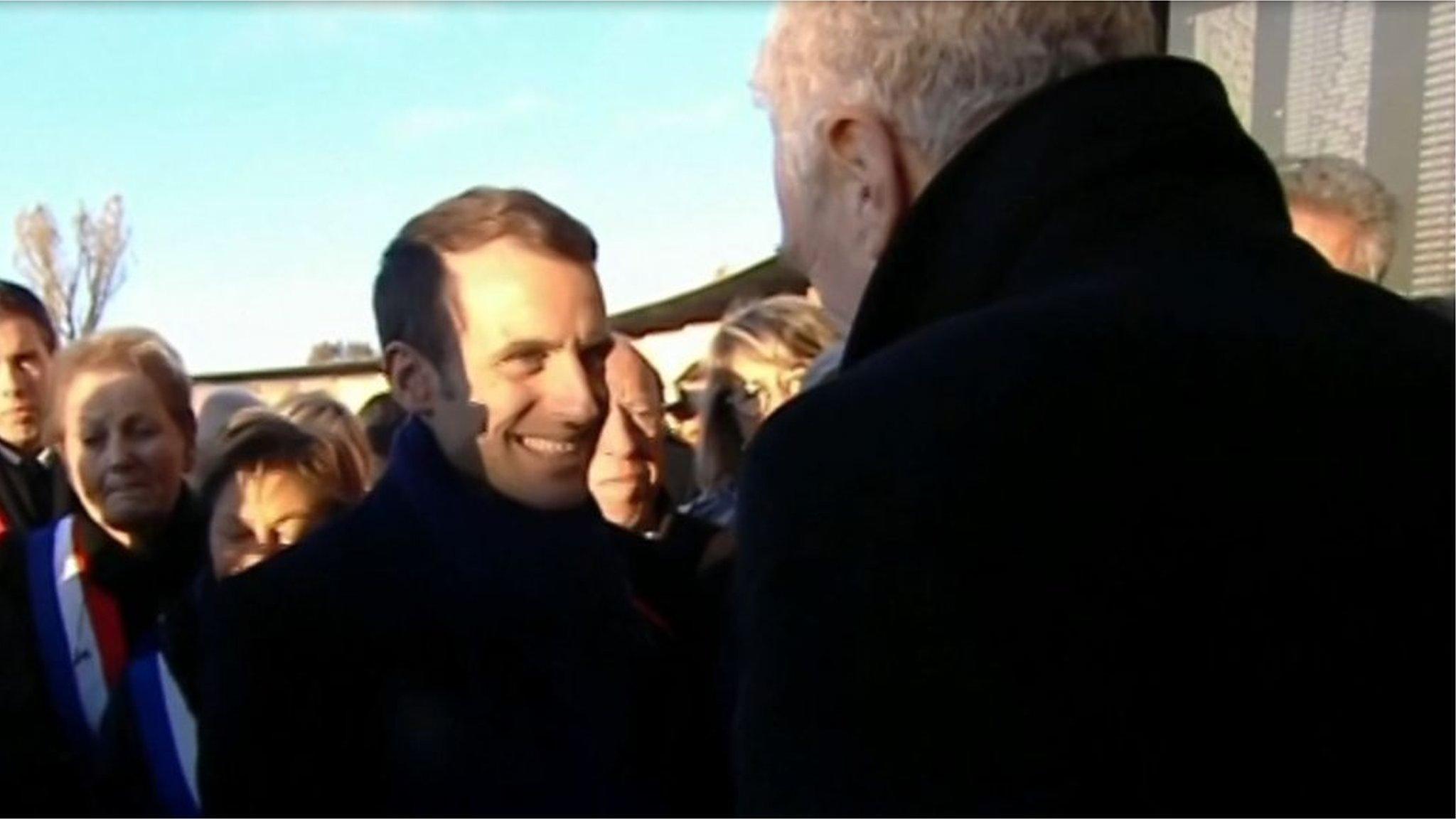Armistice Day: Macron and Merkel mark end of World War One
- Published
Angela Merkel and Emmanuel Macron shared a tender moment in a ceremony at the site where the Armistice was signed
French President Emmanuel Macron and German Chancellor Angela Merkel have left their own mark of reconciliation at the start of events to mark the centenary of the end of World War One.
They signed a book of remembrance in a railway carriage identical to the one in which the 1918 Armistice was sealed.
US President Donald Trump is among world leaders attending the events.
But Mr Trump caused controversy by cancelling a trip to a US cemetery on Saturday because of bad weather.
The day had a tense beginning amid a row between Mr Trump and Mr Macron over European defence.
The French leader said the EU needed a joint army now that the US was pulling out of a key disarmament treaty with Russia.
Mr Trump described the comments as insulting and said Europe should pay its share of costs within Nato, the Euro-Atlantic alliance.
After a meeting at the Elysée Palace, Mr Macron said he agreed that Europe should pay more.
What happened at the Armistice site?
Mrs Merkel became the first German leader since World War Two to visit the forest near the town of Compiègne in northern France where the Armistice was signed.
She and Mr Macron unveiled a plaque to Franco-German reconciliation, laid a wreath and signed a book of remembrance in a replica railway carriage.
The original wagon, on which it was modelled, was used by Adolf Hitler to accept France's capitulation to Nazi Germany in June 1940.
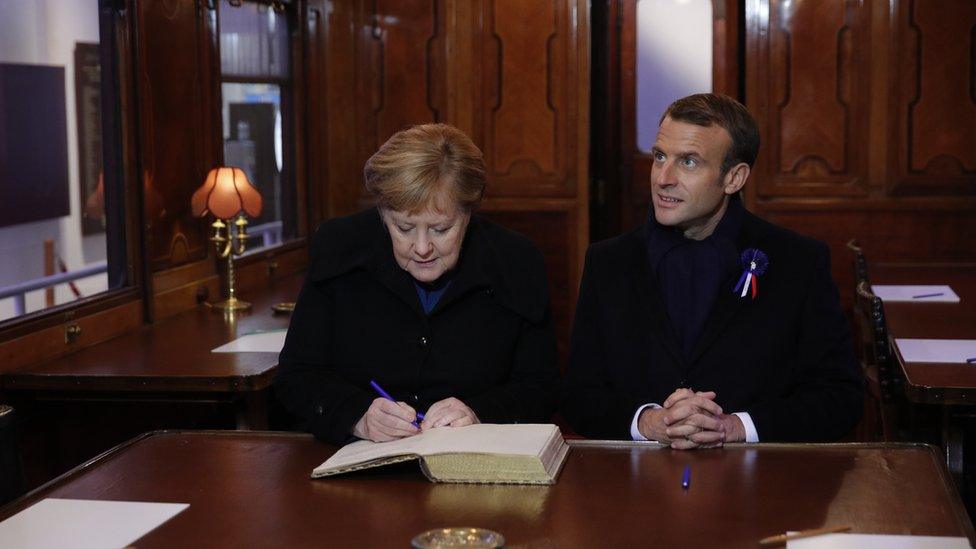
Mrs Merkel was the first post-war German leader to visit the Compiègne site
Around 70 world leaders are gathering in Paris for the events.
Mr Macron will lead the main event of the centenary - a sombre commemoration on Sunday at the Tomb of the Unknown Soldier, a memorial to France's fallen under the Arc de Triomphe in Paris.
Sunday afternoon will see Mr Macron and Mrs Merkel attend a peace conference - the Paris Peace Forum - with leaders including Russian President Vladimir Putin and Turkey's Recep Tayyip Erdogan.
Why did Trump cancel his cemetery trip?
After an hour of talks with Mr Macron and lunch with their wives Melania and Brigitte, Mr Trump had been due to visit one of two American cemeteries on his schedule.
But he cancelled his trip to the Aisne-Marne American Cemetery and Memorial due to "scheduling and logistical difficulties caused by the weather".
White House officials later explained that low cloud would have prevented his helicopter from landing, and cited security concerns about arranging a motorcade to the site.
Gen. John Kelly, the White House chief of staff, attended on the president's behalf.
The decision attracted much derision on social media, including from President George W Bush speechwriter David Frum who, like many, drew comparisons with the conditions faced by the troops who fought and died in World War One.
Allow X content?
This article contains content provided by X. We ask for your permission before anything is loaded, as they may be using cookies and other technologies. You may want to read X’s cookie policy, external and privacy policy, external before accepting. To view this content choose ‘accept and continue’.

Particularly strong reaction came from Nicholas Soames, UK Conservative MP and grandson of British wartime leader Winston Churchill.
Allow X content?
This article contains content provided by X. We ask for your permission before anything is loaded, as they may be using cookies and other technologies. You may want to read X’s cookie policy, external and privacy policy, external before accepting. To view this content choose ‘accept and continue’.


The Armistice 100 years on

Long read: The forgotten female soldier on the forgotten frontline
Video: War footage brought alive in colour
Interactive:, external What would you have done between 1914 and 1918?
Living history: Why 'indecent' Armistice Day parties ended
Did Trump and Macron patch up their differences?
Meeting Mr Macron at the presidential palace in Paris, Mr Trump said the US wanted "a strong Europe," but the defence bill "has been largely on the United States".
Mr Macron said he agreed that "we need a much better burden-sharing within Nato".
Macron gave Trump a slightly awkward leg pat after defending his idea of a European army
The row began when Mr Macron told French radio station Europe 1 radio on Tuesday "we must have a Europe that can defend itself on its own without relying only on the United States".
Mr Macron went on to mention threats to Europe, including "re-emerging authoritarian powers" that were well-armed on Europe's borders, and attempts to launch cyber-attacks, before concluding: "We have to protect ourselves with respect to China, Russia and even the United States of America."
Mr Trump responded angrily in a Friday night tweet, writing: "President Macron of France has just suggested that Europe build its own military in order to protect itself from the US, China and Russia. Very insulting, but perhaps Europe should first pay its fair share of NATO, which the US subsidizes greatly!"
The ups and downs of Trump and Macron
Mr Macron has already raised spending considerably to meet a Nato target of 2% of the GDP going to defence.
He is also overseeing the formation of a European Intervention Initiative, a 10-nation endeavour backed by Germany and the UK.
- Published10 November 2018
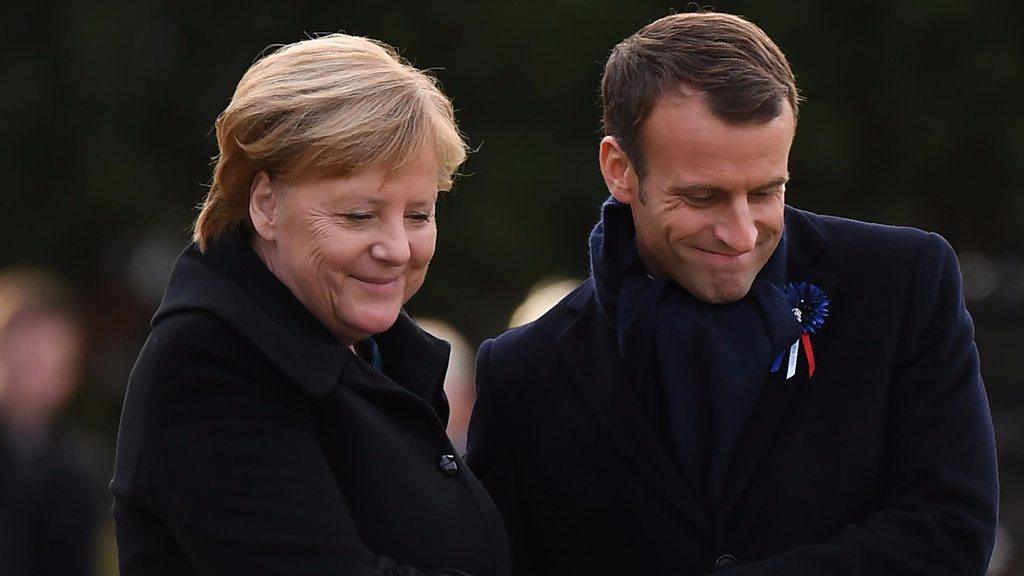
- Published10 November 2018
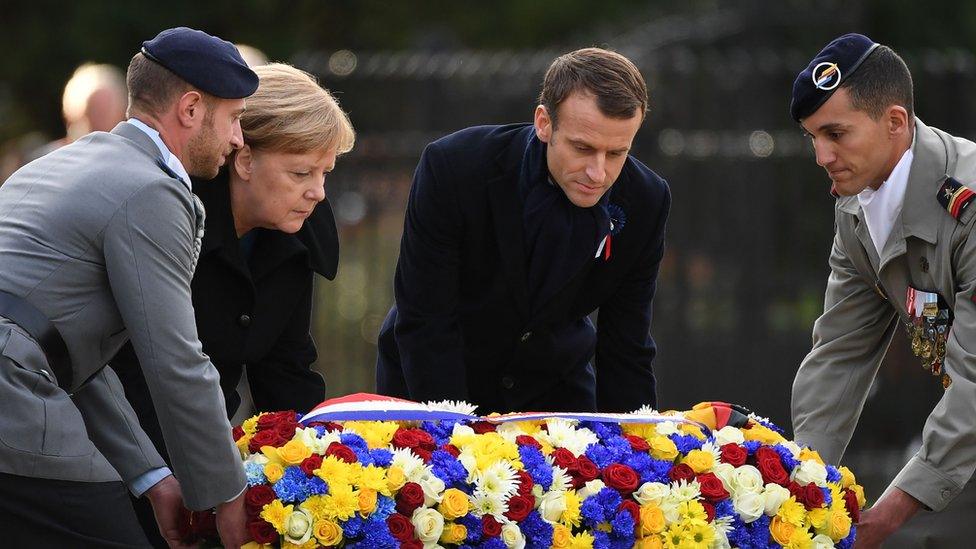
- Published9 November 2018
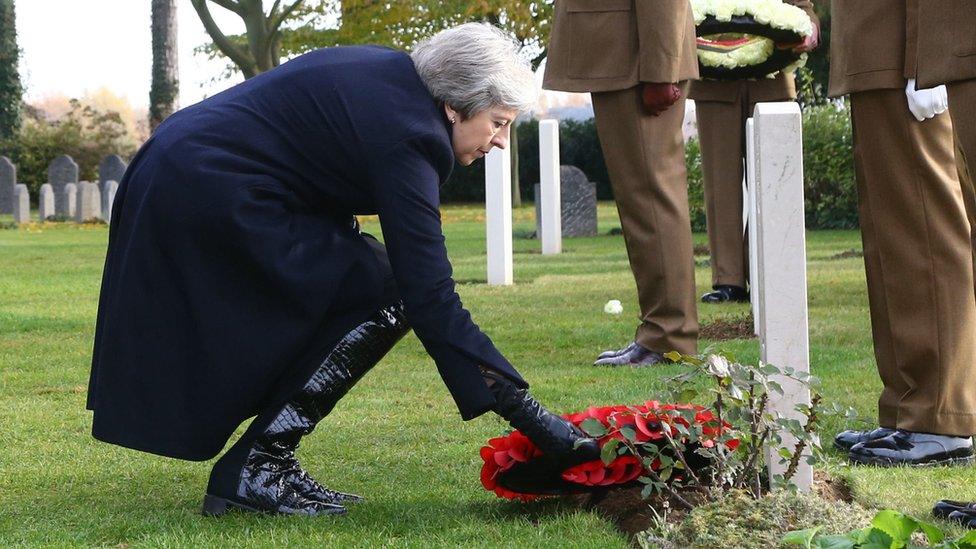
- Published6 November 2018
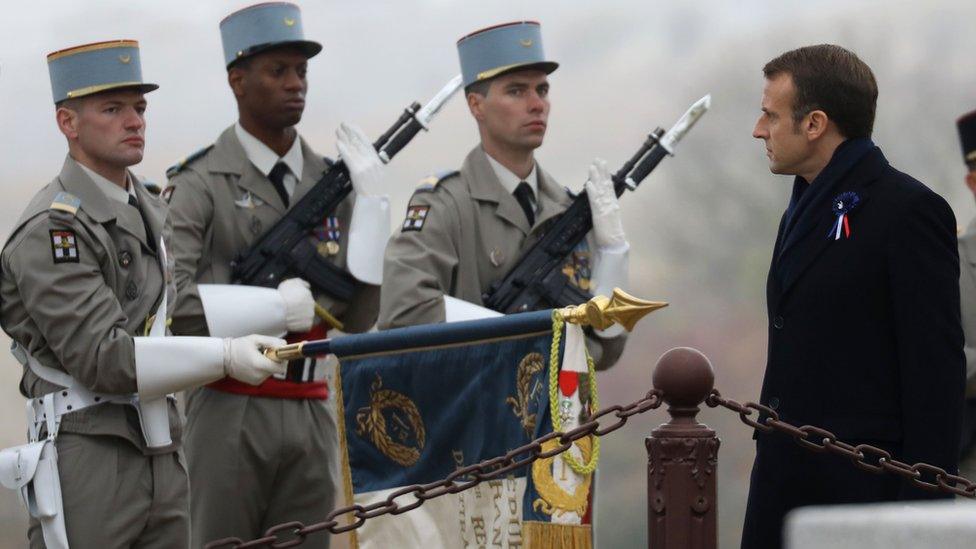
- Published23 April 2018
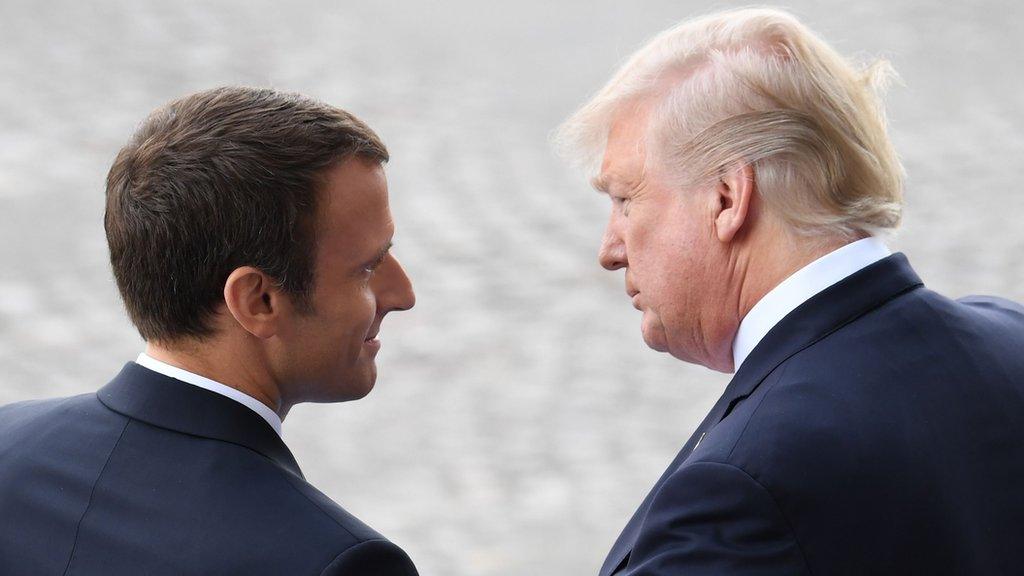
- Published9 November 2018
